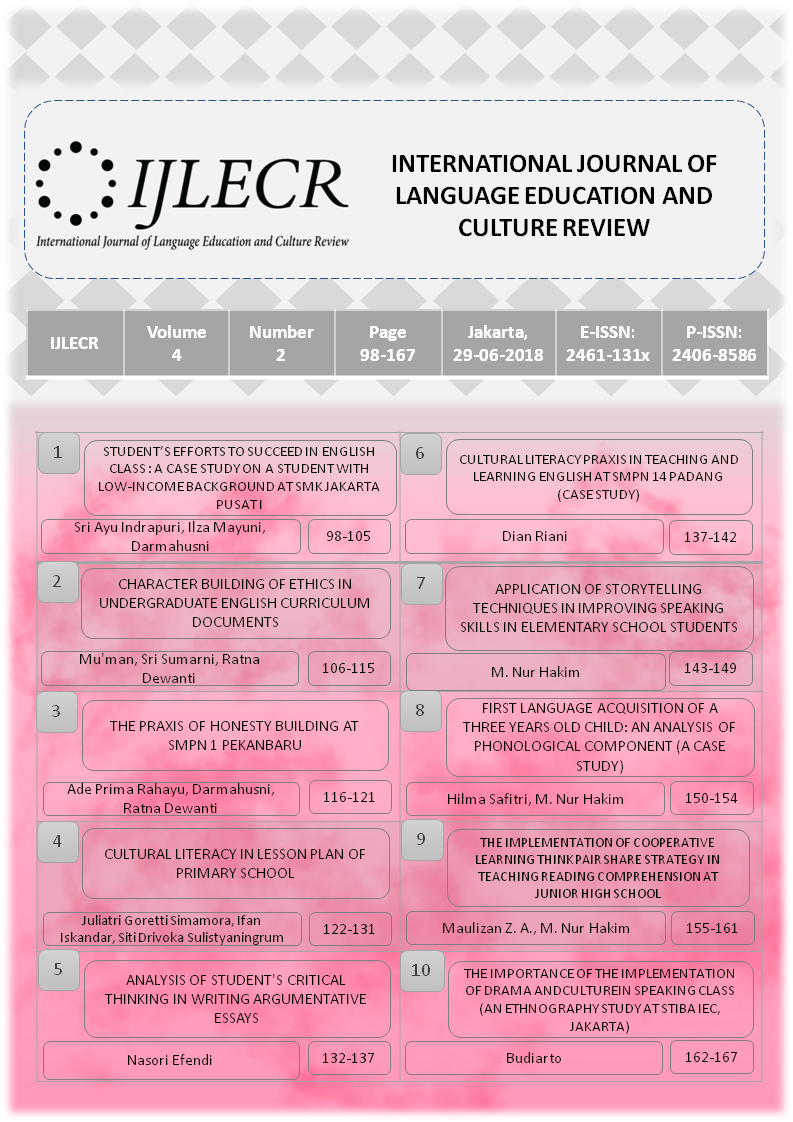FIRST LANGUAGE ACQUISITION OF A THREE YEARS OLD CHILD: AN ANALYSIS OF PHONOLOGICAL COMPONENT (A CASE STUDY)
DOI:
https://doi.org/10.21009/IJLECR.052.18Kata Kunci:
First language acquisition, the language componentAbstrak
The process of language acquisition undergone by each child in the world is more and less similar. This is because language is universal in which it is acquired through all language components namely phonology, semantics, and pragmatics. The component of phonology is more related to human neuro-biology. The process of sound produced is genetic and human biological development is not similar. Hence, the language development of human beings is not exactly the same. This paper explores first language acquisition particularly on the phonological component of a three years old child named Andi. The data is the transcripts of dialog taken from causal chit chats with the participant. A qualitative method is used to analyze the data. The findings reveal that the participant acquired vocal sounds of /a/, /i/, /u/, /o/, /e/ and consonant sounds of /p/, /b/, /m/, /t/ more dominant compared to others. He never produced /k/ consonant, fricative [s] and [j]. However, he produced nasal consonants of [m], [n], and [ɳ]. The participant also substituted omitted a few sounds. This might happen because his speech articulation has not developed well yet or genetic factor does not allow him to do so.








